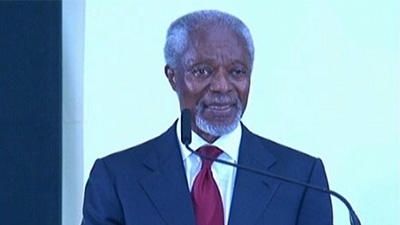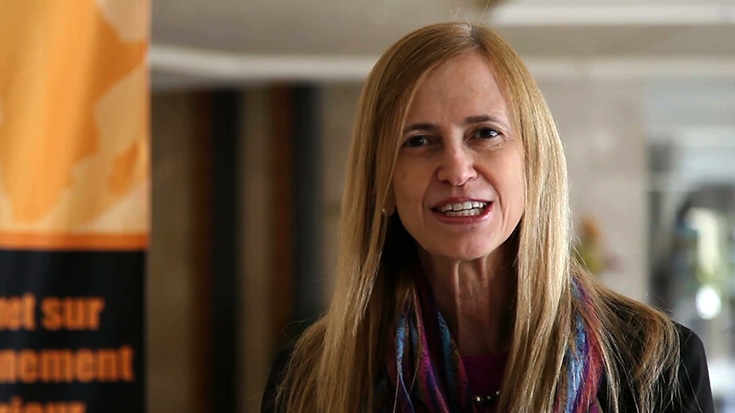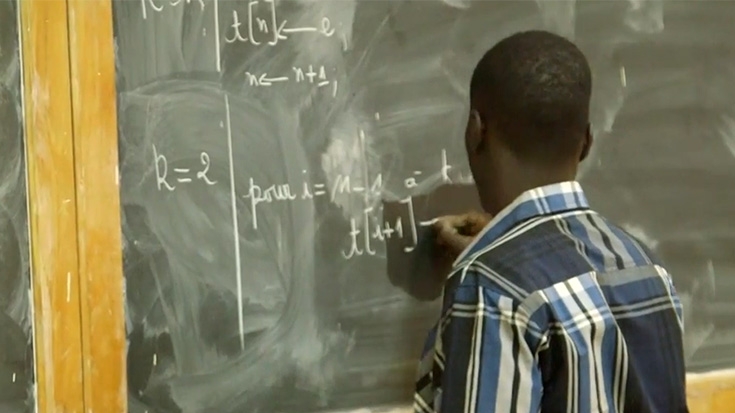Dr. Nkosazana Dlamini-Zuma, Chairperson of the African Union Commission, and Macky Sall, President of Senegal, opened the summit, challenging participants to finalize a declaration of common goals for higher education on the continent.
“The rate of access to higher education in Africa is trailing at 7%, compared to 76% in the West. There is an urgent need to facilitate access and build capacity in African universities,” said President Sall.
According to Dr. Dlamini-Zuma, the question of the day was Africa’s ability to adapt its curricula, research, and teaching methods to a changing continent and world.
“We produce too few PhDs, medical doctors, engineers, scientists, project managers, and mathematicians,” Dlamini-Zuma said. “Our youthful population is confronted with an aging academic and research community which limits opportunities for innovation and expansion.”
Revitalizing higher education in Africa will require firm commitments on the part of governments, significant sustainable investment, broader partnerships, and a long-term vision. The summit created a platform for stakeholders to discuss just that, delving into questions of equity, access, employability, funding, partnerships, and gender.
Citing the power of effective partnerships, Kofi Annan, former Secretary-General of the United Nations and Chair of Africa Progress Panel, said “partnerships with the private sector can overcome the mismatch between the needs of African employers and the skills of its young graduates. Otherwise, university degrees will not secure the jobs graduates expect, and that is a recipe for social and political, as well as economic trouble.”
Strategic partnerships amongst African universities and international donors are also a vital part of the equation. Currently, “the World Bank invests 20% of its education budget for Sub-Saharan Africa in higher education, representing approximately $600 million,” noted Claudia Costin, Senior Director for Education at the World Bank Group, during a high-level panel on investment in African higher education.
To bridge gaps in quality and retain talent, the World Bank is supporting 19 centers of research excellence in several countries in West and Central Africa, during the first phase of the flagship Africa Centers of Excellence project.
“These centers, which are helping to boost science, technology, engineering and mathematics-related disciplines, are a direct response to Africa’s development needs,” said Andreas Blom, Lead Economist for Education at the World Bank.
While the needs in the region—which range from adapting to climate change to fighting infectious diseases—are great, optimism for Africa’s universities, their students, and their faculty abounds. And one thing is certain, high performing education systems will play a crucial role in unlocking Africa’s full social and economic potential in the years to come.
Dr. Nkosazana Dlamini-Zuma, Chairperson of the African Union Commission, and Macky Sall, President of Senegal, opened the summit, challenging participants to finalize a declaration of common goals for higher education on the continent.
“The rate of access to higher education in Africa is trailing at 7%, compared to 76% in the West. There is an urgent need to facilitate access and build capacity in African universities,” said President Sall.
According to Dr. Dlamini-Zuma, the question of the day was Africa’s ability to adapt its curricula, research, and teaching methods to a changing continent and world.
“We produce too few PhDs, medical doctors, engineers, scientists, project managers, and mathematicians,” Dlamini-Zuma said. “Our youthful population is confronted with an aging academic and research community which limits opportunities for innovation and expansion.”
Revitalizing higher education in Africa will require firm commitments on the part of governments, significant sustainable investment, broader partnerships, and a long-term vision. The summit created a platform for stakeholders to discuss just that, delving into questions of equity, access, employability, funding, partnerships, and gender.
Citing the power of effective partnerships, Kofi Annan, former Secretary-General of the United Nations and Chair of Africa Progress Panel, said “partnerships with the private sector can overcome the mismatch between the needs of African employers and the skills of its young graduates. Otherwise, university degrees will not secure the jobs graduates expect, and that is a recipe for social and political, as well as economic trouble.”
Strategic partnerships amongst African universities and international donors are also a vital part of the equation. Currently, “the World Bank invests 20% of its education budget for Sub-Saharan Africa in higher education, representing approximately $600 million,” noted Claudia Costin, Senior Director for Education at the World Bank Group, during a high-level panel on investment in African higher education.
To bridge gaps in quality and retain talent, the World Bank is supporting 19 centers of research excellence in several countries in West and Central Africa, during the first phase of the flagship Africa Centers of Excellence project.
“These centers, which are helping to boost science, technology, engineering and mathematics-related disciplines, are a direct response to Africa’s development needs,” said Andreas Blom, Lead Economist for Education at the World Bank.
While the needs in the region—which range from adapting to climate change to fighting infectious diseases—are great, optimism for Africa’s universities, their students, and their faculty abounds. And one thing is certain, high performing education systems will play a crucial role in unlocking Africa’s full social and economic potential in the years to come.



